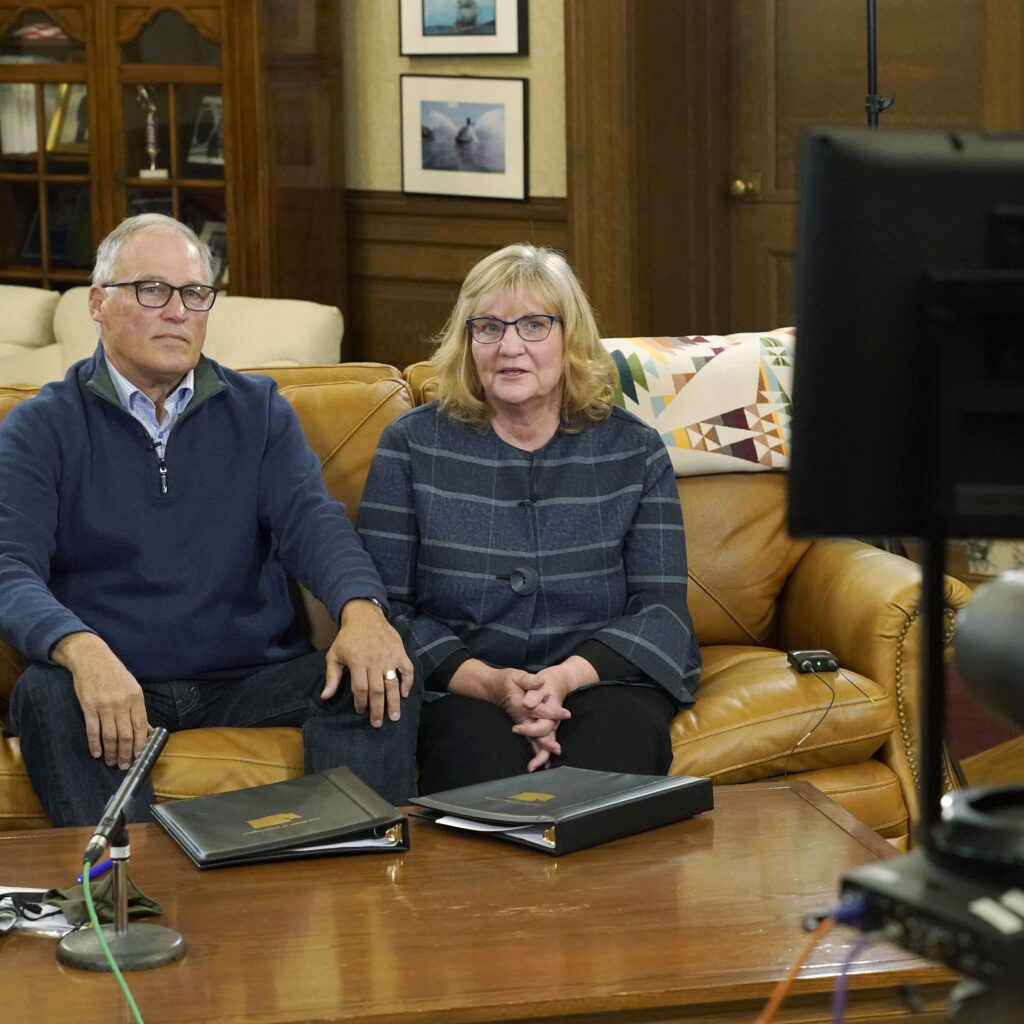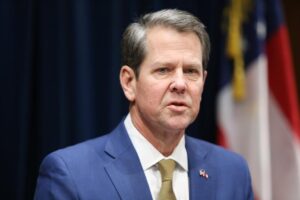State Senate holds hearing on limiting Inslee’s emergency powers

Washington Policy Center’s (WPC) Jason Mercier grants that in an emergency, governors need broad powers to act fast. Legislative bodies inevitably take longer to assemble and act than a single executive, so they delegate their powers to the executive in emergencies, for a limited time.
But he doesn’t believe the governor’s ability to respond swiftly to an emergency should be indefinite without legislative oversight.
“Traditionally, this has meant things like volcanic eruptions, an earthquake, a bridge collapse,” Mercier, director of WPC’s Center for Government Reform, said in testimony at Tuesday’s Senate State Government & Elections Committee work session on the legislative role during state emergencies. “Just yesterday, we had an example when the governor issued his emergency declarations for the severe weather that was experienced in Western Washington.”
On Monday, Gov. Jay Inslee issued a severe weather emergency proclamation for several counties in the state impacted by flooding from relentless rainfall. The proclamation covers Clallam, Grays Harbor, Island, Jefferson, Lewis, King, Kitsap, Pierce, Mason, San Juan, Skagit, Snohomish, Thurston, and Whatcom counties.
Under the provisions of the proclamation, state agencies and departments are required to direct resources and do “everything reasonably possible” to help those who have been negatively impacted by the weather.
“These are important powers to have,” Mercier continued. “But they should be limited because it’s a temporary delegation of legislative authority to the executive branch.”
On February 29, 2020, Inslee declared a statewide emergency in response to the spread of COVID-19 under the Emergency Powers Act per the Revised Code of Washington (RCW) 43.06.220. He has since issued scores of additional pandemic-related proclamations on everything from stay-at-home orders to school closures to a moratorium on evictions to a vaccine mandate.
Mandates and rules from the executive branch don’t allow for the public to participate in the process through their elected representatives in the legislature, Mercier said.
“As staff indicated, Washington’s emergency statutes have very little legislative oversight,” Mercier said. “And this is somewhat unique to the state of Washington and three other states.”
Those three other states are Vermont, Ohio, and Hawaii, but perhaps not for long.
Mercier noted that in Hawaii state House Speaker Scott Saiki is working to bring the state legislature back into the picture.
Hawaii Gov. David Ige issued his first COVID-19 emergency proclamation 20 months ago.
“I’ll be working on a bill that will allow the legislature to basically disapprove the governor’s emergency proclamation, whether it’s the entire proclamation or just a portion of the proclamation,” Saiki told Hawaii News Now.
Mercier pointed to a recent national study that found Washington state ranks near the bottom of states in terms of providing legislative oversight of emergency actions by the executive branch.
“The role of the legislature is not a partisan issue,” Mercier said. “It’s an institutional issue in how our governance is structured.”
Mercier recommended the committee reform the state’s emergency powers similar to what was proposed by Senate Bill 5039 – that is, a 30-day legislative extension requirement for all emergency orders from the governor, with an exception for an emergency order narrowly written solely to qualify for federal funds.
“Our system is really not set up to be the arbitrary decision making of one person behind closed doors,” Mercier said. “And for too often in this past year, it’s felt like we have been governed by press conference and not by the public legislative process.”
This article was originally posted on State Senate holds hearing on limiting Inslee’s emergency powers







